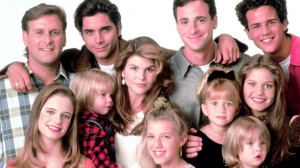The headline in today’s San Francisco Chronicle was promising: “Mayor Lee takes steps to keep families in S.F.” But then I read the details:
Mayor Ed Lee took steps Tuesday to make San Francisco a little more family friendly and easier to get around, announcing the city would provide funding to help pay for basic preschool for all 4-year-olds in the city and substantially expand its Muni light-rail fleet.
It’s well-known to locals that San Francisco is brutal for young families, but not because of limited pre-school access or crowded Muni trains. It’s simpler than that: the public school system is painfully dysfunctional, with a convoluted lottery system keeps kids from attending their neighborhood schools and instead can send them on hour-long bus trips to far-flung neighborhoods. And on top of that, the city’s notoriously high cost of housing, due in part to local opposition to and restrictions on residential growth, is even worse for families with kids that need multiple-bedroom homes.
The result is evident from this Chronicle write-up of the last U.S. Census:
Just 13.4 percent of San Francisco’s 805,235 residents are younger than 18, the smallest percentage of any major city in the country. By contrast, San Jose’s percentage of children is 24.8 percent, Oakland’s is 21.3 percent, Boston’s is 16.8 percent and Seattle’s is 15.4 percent, according to Brian Cheu, director of community development for the Mayor’s Office of Housing. Even Manhattan is composed of roughly 15 percent children, according to Dan Kelly, director of planning for San Francisco’s Human Services Agency.
In 1970, children made up 22 percent of San Francisco. In 1960, they constituted 25 percent.
And so we have a city gentrifying faster than ever before, with a whiter and wealthier family base:
Families that choose to stay tend to be whiter and wealthier than ever, several city officials said. Thirty percent of families with children in San Francisco now earn at least 150 percent of the city’s median income. Those families made up 20 percent of all families with children in the city in 1990.
So while expanded pre-school access and more Muni trains sound nice, let’s not pretend it will do anything to reverse this unfortunate trend. The real action should take place on public school reform and dramatically boosting the supply of family housing in the city. Everything else is window dressing.
Leave a Reply
You must be logged in to post a comment.



